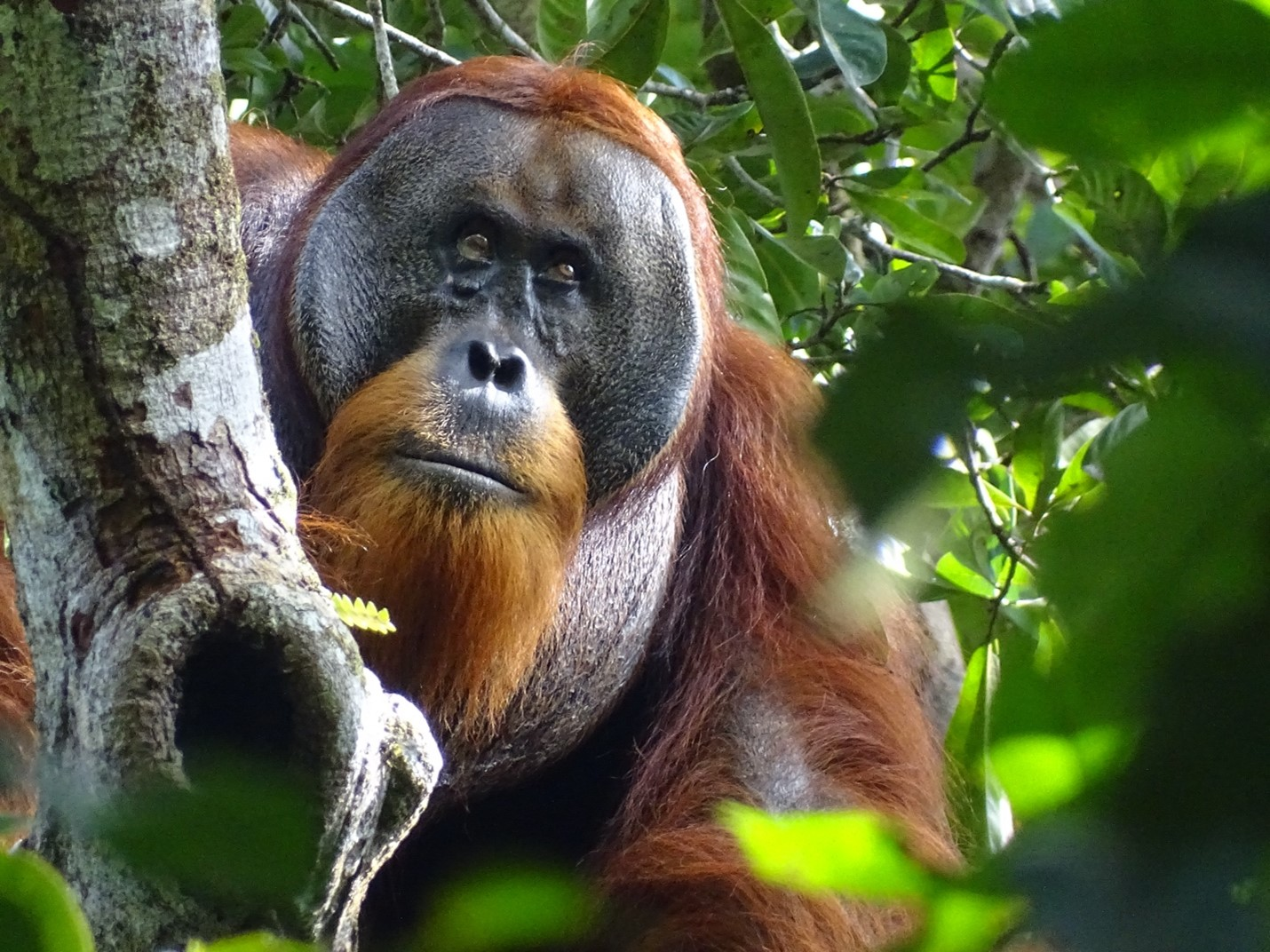A wild Sumatran orangutan has been seen chewing the leaves of the Akar Kuning plant and applying the juice to a wound on his cheek, the first time this has been reported. The process went on for seven minutes, until the wound was entirely covered, making clear it was deliberate, and the orangutan continued to chew on the plant’s leaves for another half an hour. The wound healed fully without infection.
Stories of animals seeming to understand the healing power of certain plants are widespread, particularly their use against parasites or infections both internal and external. However, the report of deliberate application to a wound site made by researchers represents a first for any species other than humans. The closest counterpart is chimpanzees applying an unknown insect to their own wounds, or occasionally those of other members of their troop.
The medicine ape is a male, known as Rakus to researchers who have been watching him and other members of his species in the Gunung Leuser National Park. Dr Isabelle Laumer and colleagues saw Rakus with a wound on his right cheek in June 2022. Three days later, they witnessed him chewing on Akur Kuning (Fibraurea tinctoria). He did not apply the chewed leaves anywhere other than the wound.
Besides its application in preventing wound infections, Sumatrans use Akar Kuning in traditional medicine for malaria, dysentery, and even diabetes. There are even claims of compounds found in the plant having anti-cancer properties. These uses have attracted the interest of scientists, who are testing its activity against some of these conditions. Although preclinical research has produced encouraging results, clinical trials do not appear to have been published.
Rakus was not seen acquiring the wound, but sounds of a fight between adult males were heard in the area on the day it is thought to have happened. Fights among orangutans in the park are rare, since food is abundant, but the area lacked a dominant male and Rakus appears to have been trying to establish himself.
After the wound appeared, he was observed to rest more than usual until fully recovered, particularly when the wound was fresh. The wound closed four days after the treatment, and appeared fully healed within three weeks of applying the plant

Thanks to his knowledge of medicinal plants, Rakus was fully healed three weeks after treatment.
Image Credit: Safruddin
Orangutans appear to be particularly avid users of medicinal plants. There are accounts of orangutans swallowing leaves of plants directly related to parasite infections, a practice common among other apes. More distinctive are reports of (mostly) female Bornean orangutans assiduously chewing leaves of the Dracaena cantleyi plant for several minutes before rubbing the lather on their arms and legs for more than half an hour. The reason is unknown, but Indigenous people in the areas where Dracaena cantleyi grows use it to treat sore muscles and bone pain.
The authors speculate that Rakus may have been applying the Akar Kuning for pain relief, with any anti-bacterial properties merely a happy accident. Alternatively, it may have been a way to protect the wound against flies. Alternatively, they speculate recognition and use of medicinal plants may stretch back as far as humanity’s last common ancestor with orangutans millions of years ago.
Although widely used across Southeast Asia for its supposed medicinal properties, Akar Kuning has yet to make the jump to worldwide fame. If anyone does decide to import its extract into Western markets, they’ve certainly got the perfect salesape to market it.
The study is published open access in the journal Scientific Reports
Source Link: Orangutan Seen Treating A Wound With A Medicinal Plant In World-First Observation